As the world changes in education and assessment, it is time to look back at this exam to see where Vietnam stands in the international flow.
Special model, different from world trends
The current high school graduation exam is organized centrally, the Ministry of Education and Training sets the questions and manages the entire process nationwide; the invigilation and grading are assigned to the localities. This is a special model, different from the international trend.
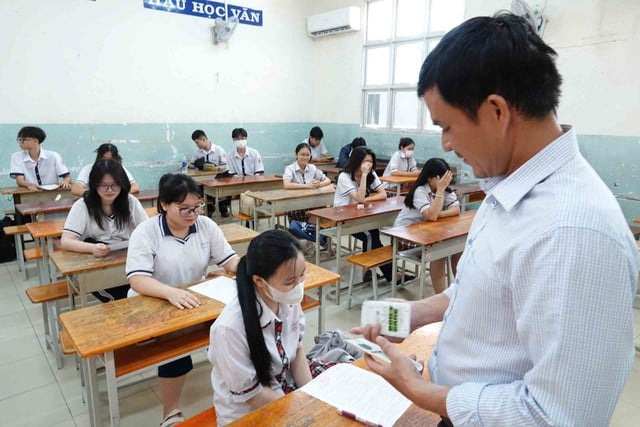
12th grade students in Ho Chi Minh City participate in the high school graduation mock exam. This exam currently has 3 purposes: graduation, teaching and learning quality assessment, and university admission.
PHOTO: DAO NGOC THACH
In the US, students do not take national graduation exams. Graduation recognition is based on credit accumulation, grade point average (GPA) and process assessment. Each state develops its own output standards, which can be referenced from countries with high PISA results such as Finland, Japan, Korea, etc.
Similarly, in Canada, Germany, Australia and Switzerland, final exams are still held but at the state or provincial level, ensuring flexibility and closeness to local educational realities. Countries such as France, Finland, South Korea and Japan continue to maintain highly academic exams or combine them with university entrance exams, but are strongly innovating towards assessing competencies, reducing exam pressure and increasing personalization through digital technology . In addition to graduation exams, many countries also organize periodic assessments in grades 3, 5, 7, 9, 11 to monitor the quality of general education.
Meanwhile, Vietnam still maintains the "3 in 1" exam model: graduation assessment, teaching and learning quality assessment, and university admission.
In the period 2017 - 2024, the exam includes 3 compulsory subjects and one optional group. Students tend to choose the social science group, increasing from 43% to 63% while the natural science group decreases from 57% to 37%, which goes against the human resource needs of society.
From 2025, the exam will be changed to 4 subjects, of which only math and literature are compulsory. Graduation results will be based 50% on exam scores and 50% on 3-year high school transcripts. Multiple choice tests will add two new question types (true/false and short answer), aiming to assess capacity according to the 2018 General Education Program. This is a remarkable improvement, but if we want to integrate more deeply into the world, we still need to continue to adjust.
Exam Grading: A World Trend
For many years now, the high school graduation rate in Vietnam has fluctuated between 97.5 and 99.8% - a very high level compared to many countries. The US is at 80 - 87%; the UK is from 75 - 89%; Finland, South Korea, and Germany are all below 92%.
The fact that almost all students graduate raises many questions that need to be explained. First, it can be seen that high school education is considered universal; second, the exam questions are often close to the curriculum, not confusing, especially in social subjects; third, the multiple-choice test format makes it easier for students to achieve average scores; and finally, the graduation consideration combined with the transcript makes the possibility of failure very low.
However, a uniformly high graduation rate can lead to limitations in differentiation, making it difficult to stream, as well as to have graduation exams that are geared towards individualization like other countries. This raises the question: Should the exam be organized nationwide or should it be decentralized to localities like developed countries have done? And should the graduation exam not carry too many goals?
One of the prominent features in developed countries is the trend of decentralization of examinations. In Germany, each state organizes its own Abitur exam, still ensuring national standards. In Canada, the exam combines the assessment of the learning process and the final exam organized by the province. Finland also allows students to choose subjects that are suitable for their career orientation.
Dr. Sai Cong Hong, former Deputy Director of the Department of Quality Management (Ministry of Education and Training), said: "In the current context, the Party and Government have had a strong policy of decentralization in education management to promote the role of localities, while enhancing autonomy and creativity in education. In particular, many proposals on decentralization to provinces to organize high school graduation exams are considered a step in line with this policy."
Decentralization does not mean loosening management, but must go hand in hand with independent and transparent quality control. Then, the exam will be closer to the teaching and learning reality of each locality, creating conditions for the 2018 General Education Program to be effective, promoting autonomy and improving educational management capacity at the provincial level.

Candidates participating in the Ho Chi Minh City National University's aptitude test. Currently, Vietnamese universities are increasingly diversifying their admission methods.
Photo: Nhat Thinh
Graduation exams and university admissions: It's time to separate
In Korea and Japan, students are recognized as graduates if they have completed the full curriculum, while university entrance is a separate exam. Suneung (Korea) or Common Test (Japan) requires profound abilities.
Meanwhile, the graduation exam in Vietnam is both for graduation and admission purposes, so the exam must be both popular and differentiated, leading to a half-heartedness. This is the contradiction in the exam's goals, causing many students to choose a safe exam strategy rather than demonstrating their abilities.
As Vietnamese universities increasingly diversify their admission methods (direct admission, review of academic records, interviews, aptitude tests, etc.), it is reasonable to separate these two functions. The graduation exam should only serve to recognize the completion of the general education program, while universities need to determine their own appropriate admission criteria.
Another major challenge is that the high school graduation exam is currently applied to all students, including those studying vocational or technical secondary schools. This eliminates the motivation for streamlining after secondary school - which is a major policy of the education sector and the state.
If we build a 3-year vocational and technical secondary school system with a high school diploma equivalent to that of high school and the right to apply to universities and colleges, then students after secondary school will have more choices. Germany, Switzerland, and Finland are countries that do this very well, with a high rate of vocational students, contributing to creating a quality technical workforce that meets the requirements of the modern labor market.
The high school graduation exam is not only a measure of students’ abilities but also reflects the educational philosophy of each country. If it is still organized uniformly, focusing on testing knowledge, lacking differentiation and flexibility, this exam will hardly become a driving force for educational innovation.
A modern exam needs to be decentralized, apply digital technology, allow students to choose subjects that match their career orientation, reduce pressure but still ensure objectivity and fairness. At that time, the Ministry of Education and Training should shift its role to building output standards and quality control instead of directly organizing. Localities and clusters of localities can proactively organize exams in accordance with actual conditions. The exam will play a role in supporting innovation in teaching and learning, instead of becoming the ultimate goal.
Computer-based testing is becoming closer to reality
Another strong trend in the world is the shift from paper-based exams to computer-based exams. Finland has completely digitized its graduation exams since 2019; the US, UK, South Korea, and Estonia have also gradually implemented electronic exams.
On June 18, at the national conference on preparations for the 2025 high school graduation exam, Prime Minister Pham Minh Chinh requested the Ministry of Education and Training to develop a project to prepare the necessary conditions for a pilot program to organize exams on computers in some localities from 2027, moving towards organizing the high school graduation exam on computers as soon as possible.
This request is completely reasonable when many large universities have organized computer-based competency assessment tests. The PISA 2025 exam in Vietnam with 7,200 students was also conducted on computers.
Proactively respond to natural disasters before the high school graduation exam
Faced with unusual weather developments, yesterday (June 22), the Minister of Education and Training sent a telegram to the Chairman of the Provincial People's Committee requesting immediate implementation of proactive measures to respond to natural disasters, in order to ensure the safe organization of the high school graduation exam.
The Minister of Education and Training requested the Provincial Steering Committee for Examinations to direct relevant units to closely monitor weather developments and maintain regular contact; establish direct contact with the Steering Committee for Natural Disaster Prevention, Control and Search and Rescue at all levels to promptly respond to emergencies.
The telegram also requested localities to ensure the safety of exam supervisors and candidates. Accordingly, localities need to have a plan to support the transportation of candidates, especially in remote areas with complex terrain; establish an information channel between schools, parents and candidates to promptly update weather conditions and provide safe travel instructions to exam locations; organize support for meals and accommodation near exam locations for officials and candidates living far away or in special circumstances, minimizing possible risks.
This year's high school graduation exam takes place from June 25 to 28.
Tue Nguyen
Source: https://thanhnien.vn/thi-tot-nghiep-thpt-thay-doi-ra-sao-de-phu-hop-voi-the-gioi-185250622185840048.htm








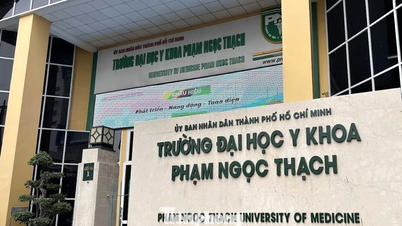


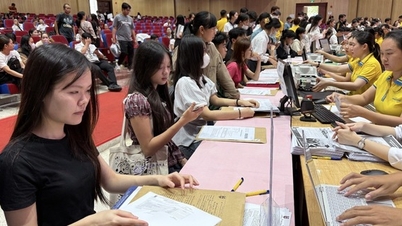

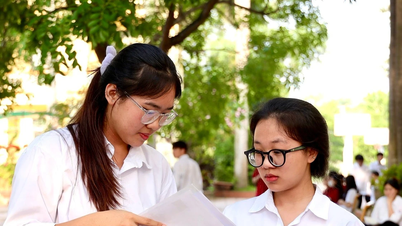
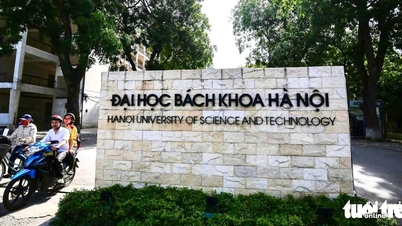

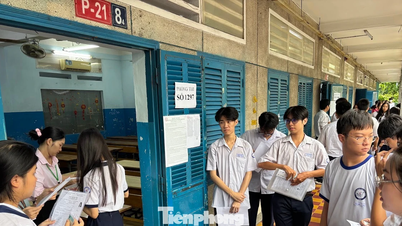















































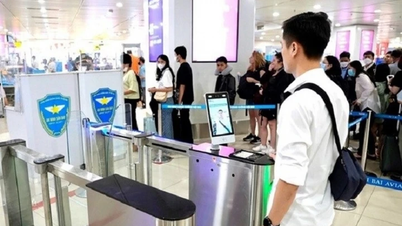





















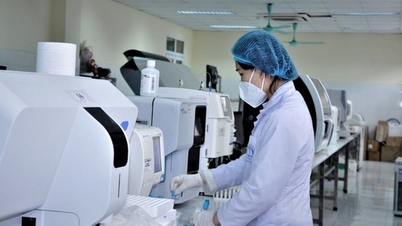







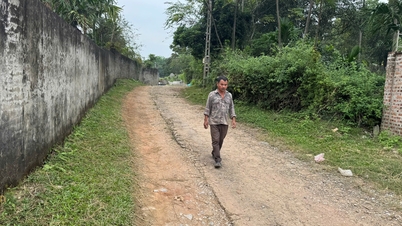







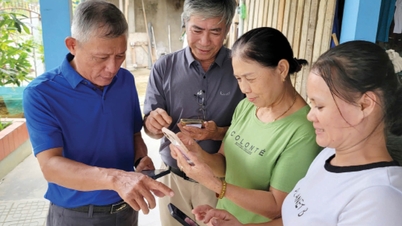












Comment (0)